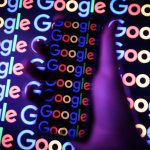Aaron Colvin, an 18-year-old from Niagara Falls, New York, found himself at a crossroads in the fall of 2023. He had just begun his freshman year at Niagara University, but his heart wasn’t in it. Driven by a desire to alleviate his mother’s financial burdens, Colvin had spent his teens pursuing various entrepreneurial ventures – T-shirts, carpet cleaning, online marketing, and more – all with limited success. He was working two jobs to save for a personal training course when a chance encounter at the gym altered his trajectory. A conversation with a bodybuilder introduced Colvin to the world of door-to-door solar sales, specifically for a company called Freedom Pros, the sales arm of Freedom Forever. The bodybuilder, fresh off a successful sales “blitz” in Florida, painted a picture of easy money and financial freedom, boasting of $20,000 monthly earnings. This encounter sparked Colvin’s interest, planting the seed of a potential alternative to his college path.
The bodybuilder connected Colvin with his manager, a 21-year-old named Will, who led a sales team dubbed “Seal Team Six.” Will’s pitch resonated with Colvin’s entrepreneurial spirit and financial anxieties. He emphasized the simplicity of the sales process, promising substantial commissions far exceeding Colvin’s current earnings. The core message was that homeowners could save significant money by switching to solar energy and even generate income by selling excess power back to the grid. This message, coupled with the allure of $5,000 behind every door, formed the crux of Seal Team Six’s sales strategy. Freedom Forever’s claimed $1 billion gross revenue in 2023 further fueled the narrative of a lucrative opportunity. However, despite the tempting offer, Colvin initially declined, hesitant to abandon his college education so soon.
Will, however, was a persistent recruiter. Throughout the fall and winter, he bombarded Colvin with social media content showcasing the luxurious lifestyles of successful “solar bros.” These influencers, often young, fit, and exuding confidence, flaunted their six-figure earnings, high-end apartments, and expensive cars. Their message reinforced the narrative that anyone, regardless of background, could achieve similar success simply by embracing the world of solar sales. This constant barrage of aspirational content, combined with Colvin’s underlying entrepreneurial drive and desire for financial security, began to wear down his resistance. The stark contrast between the mundane reality of his college life and the glamorous world portrayed by these influencers created a powerful pull towards the latter.
Colvin’s background further contributed to his susceptibility to Will’s persuasive tactics. Having grown up in modest circumstances, including a period living above a pharmacy plagued by burglaries, Colvin felt a disconnect from his more privileged college peers. This sense of not belonging, combined with his pre-existing entrepreneurial ambitions, made the promise of quick financial success through solar sales particularly appealing. He struggled to reconcile the theoretical benefits of a college education with his immediate need to improve his and his mother’s financial situation. The “solar bro” lifestyle, with its emphasis on individual hustle and immediate rewards, seemed a more direct path to achieving his goals.
The narrative presented by Will and the “solar bros” tapped into a powerful contemporary theme: the allure of the gig economy and the promise of entrepreneurial freedom. This narrative often emphasizes the ability to be one’s own boss, set one’s own hours, and achieve financial independence outside the confines of traditional employment. It often downplays the challenges and risks inherent in such ventures, focusing instead on the potential rewards. For someone like Colvin, already disillusioned with the traditional academic path and burdened by financial anxieties, the promise of quick riches and personal autonomy in the solar industry proved a compelling alternative.
The story of Aaron Colvin illustrates the potent combination of factors that can drive individuals towards unconventional career paths. Economic anxieties, the desire for personal agency, the influence of social media narratives, and the persuasive power of a skilled recruiter all played a role in shaping Colvin’s decision-making process. While the long-term viability and ethical implications of the door-to-door solar sales industry remain open to debate, Colvin’s experience provides a glimpse into the motivations and vulnerabilities of young people seeking financial stability and personal fulfillment in an increasingly complex economic landscape. It highlights the allure of the “get rich quick” narrative, particularly among those who feel marginalized by traditional systems and institutions.



